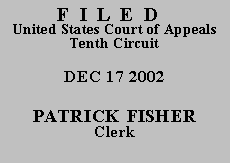

|
DAVID WAYNE ELLIS, |
|
Before KELLY, McKAY, and MURPHY, Circuit Judges.
Proceeding pro se, petitioner David Wayne Ellis seeks a certificate of appealability ("COA") to enable him to appeal the district court's denial of his 28 U.S.C. § 2254 petition. See 28 U.S.C. § 2253(c)(1)(A) (providing that no appeal may be taken from the denial of a § 2254 petition unless the petitioner first obtains a COA). The district court dismissed Ellis' petition because it was untimely under the Antiterrorism and Effective Death Penalty Act of 1996. See 28 U.S.C. § 2244(d)(1) ("A 1-year period of limitation shall apply to an application for a writ of habeas corpus by a person in custody pursuant to a judgment of a State court."). Ellis is not entitled to a COA unless he can make a "substantial showing of the denial of a constitutional right." Id. § 2253(c)(2). Ellis can make this showing by demonstrating that the issues raised are debatable among jurists, a court could resolve the issues differently, or that the questions presented deserve further proceedings. See Slack v. McDaniel, 529 U.S. 473, 483-84 (2000).
This court has read Ellis' request for a COA and accompanying brief and has conducted a de novo review of the district court's order and the entire record on appeal. That de novo review clearly demonstrates the district court's dismissal of Ellis' § 2254 petition as untimely is not deserving of further proceedings or subject to a different resolution on appeal. Accordingly, this
court denies Ellis' request for a COA for substantially those reasons set forth in the district court's order filed April 1, 2002, and dismisses this appeal.
ENTERED FOR THE COURT
Michael R. Murphy
Circuit Judge
*. This order and judgment is not binding precedent, except under the doctrines of law of the case, res judicata and collateral estoppel. The court generally disfavors the citation of orders and judgments; nevertheless, an order and judgment may be cited under the terms and conditions of 10th Cir. R. 36.3.